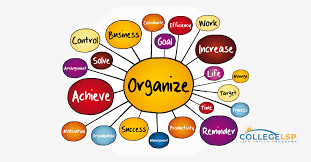The Meaning of Empowerment
Empowerment is a concept that holds significant importance in personal growth, social change, and organizational development. It refers to the process of enabling individuals or groups to gain control over their lives, make informed decisions, and take action to achieve their goals.
At its core, empowerment is about giving power to people rather than taking it away. It involves providing individuals with the tools, resources, and support they need to realize their full potential and effect positive change in their lives and communities.
Key Components of Empowerment
Autonomy: Empowerment involves granting individuals the autonomy to make choices and act independently based on their own values and beliefs.
Self-efficacy: Empowerment fosters a sense of self-efficacy, where individuals believe in their ability to overcome challenges and achieve success.
Access to Resources: Providing access to resources such as education, information, skills training, and support networks is crucial for empowerment.
The Impact of Empowerment
Empowerment can have far-reaching effects on individuals, communities, and societies as a whole. When people feel empowered, they are more likely to take initiative, pursue opportunities for growth, advocate for their rights, and contribute positively to society.
Empowered individuals are better equipped to address issues such as inequality, discrimination, poverty, and injustice. By empowering marginalized groups and amplifying their voices, we can work towards creating a more equitable and inclusive world for all.
Cultivating Empowerment
Cultivating empowerment requires a collective effort from individuals, organizations, governments, and communities. By promoting education, fostering leadership skills, advocating for equal rights and opportunities, and creating supportive environments, we can empower people to lead fulfilling lives with dignity and agency.
Empowerment is not just a buzzword; it is a powerful force that has the potential to transform lives and shape the future. Let us embrace the true meaning of empowerment and work together towards building a more empowered world for all.
The Benefits of Empowerment: Unlocking Self-Confidence, Equality, and Innovation
- Empowerment enables individuals to take control of their own lives.
- It fosters a sense of self-confidence and self-worth.
- Empowered individuals are more likely to pursue their goals and aspirations.
- It promotes equality by giving everyone a voice and agency.
- Empowerment can lead to increased motivation and productivity.
- It encourages innovation and creativity as people feel empowered to think outside the box.
- Empowerment creates a supportive environment for personal growth and development.
Potential Pitfalls of Empowerment: Navigating Conflicts, Resistance, and Accountability Challenges
- Empowerment can lead to conflicts within organizations or groups as power dynamics shift.
- Overemphasis on individual empowerment may overlook the importance of collective action and community collaboration.
- Empowerment initiatives may face resistance from those who benefit from maintaining the status quo.
- Misguided empowerment efforts without proper support and resources can result in frustration and disillusionment.
- Empowerment without accountability measures in place may lead to misuse of power or unethical behavior.
Empowerment enables individuals to take control of their own lives.
Empowerment, with its essence of granting individuals the autonomy and resources they need, enables them to take control of their own lives. By fostering a sense of self-efficacy and providing opportunities for growth and development, empowerment empowers individuals to make informed decisions, set goals, and take decisive actions in shaping their futures. This sense of agency not only enhances personal well-being but also contributes to building resilient communities where individuals are active participants in creating positive change.
It fosters a sense of self-confidence and self-worth.
Empowerment meaning fosters a sense of self-confidence and self-worth by encouraging individuals to recognize their own abilities, strengths, and inherent value. When people feel empowered, they are more likely to believe in themselves, take on challenges with resilience, and strive for personal growth and success. This boost in self-confidence and self-worth not only benefits the individual but also positively impacts their interactions with others and their ability to navigate various aspects of life with a sense of purpose and determination.
Empowered individuals are more likely to pursue their goals and aspirations.
Empowered individuals are more inclined to actively pursue their goals and aspirations with determination and confidence. When people feel empowered, they have a strong sense of self-belief and agency, which motivates them to take decisive actions towards achieving their dreams. By embracing empowerment, individuals are better equipped to overcome obstacles, seize opportunities, and strive for personal growth and fulfillment. This proactive approach not only benefits the empowered individual but also contributes positively to their communities and society at large.
It promotes equality by giving everyone a voice and agency.
Empowerment meaning promotes equality by ensuring that everyone has a voice and agency in decision-making processes. By empowering individuals to speak up, make choices, and take action based on their own beliefs and values, empowerment helps level the playing field and create a more inclusive society where diverse perspectives are valued and respected. When everyone has the opportunity to participate actively and contribute meaningfully, true equality can be achieved, leading to a more just and harmonious community for all.
Empowerment can lead to increased motivation and productivity.
Empowerment can lead to increased motivation and productivity by giving individuals a sense of ownership and control over their work and goals. When people feel empowered, they are more likely to be motivated to excel and contribute their best efforts. By granting autonomy and trust, empowering individuals can ignite a sense of purpose and commitment, resulting in higher levels of productivity and job satisfaction. This positive cycle of empowerment fostering motivation and productivity can create a thriving environment where individuals feel valued, engaged, and driven to achieve success.
It encourages innovation and creativity as people feel empowered to think outside the box.
Empowerment meaning encourages innovation and creativity by fostering an environment where individuals feel empowered to think outside the box. When people have the freedom and confidence to explore new ideas and approaches, they are more likely to come up with innovative solutions to challenges. Empowered individuals are willing to take risks, experiment with different strategies, and push boundaries in pursuit of progress. This culture of empowerment not only fuels creativity but also drives continuous improvement and growth in various aspects of life and work.
Empowerment creates a supportive environment for personal growth and development.
Empowerment plays a crucial role in fostering a supportive environment for personal growth and development. By empowering individuals to take control of their lives, make decisions, and pursue their goals, we create a space where people feel encouraged to explore their potential, learn from challenges, and strive for continuous improvement. This supportive atmosphere not only nurtures individual growth but also cultivates a sense of confidence, resilience, and self-belief that empowers individuals to overcome obstacles and reach new heights in their personal and professional endeavors.
Empowerment can lead to conflicts within organizations or groups as power dynamics shift.
Empowerment, while a valuable tool for fostering individual growth and collective progress, can also introduce challenges within organizations or groups. As power dynamics shift to distribute authority more evenly among members, conflicts may arise as individuals adjust to new roles and responsibilities. Disagreements over decision-making processes, resource allocation, and leadership can emerge as different perspectives on empowerment clash. It is essential for organizations to navigate these conflicts thoughtfully, promoting open communication, mutual respect, and conflict resolution strategies to ensure that empowerment efforts result in positive outcomes for all involved.
Overemphasis on individual empowerment may overlook the importance of collective action and community collaboration.
An important con of focusing excessively on individual empowerment is the risk of neglecting the significance of collective action and community collaboration. While empowering individuals is crucial for personal growth and agency, an exclusive emphasis on individual empowerment may undermine the power of working together towards common goals. True empowerment also involves fostering a sense of solidarity, shared responsibility, and mutual support within communities. By overlooking the value of collective action, we may miss out on the transformative impact that collaboration can have in addressing systemic issues and creating sustainable change that benefits everyone. Balancing individual empowerment with community collaboration is essential for building a more inclusive and equitable society where everyone has a voice and a stake in shaping their shared future.
Empowerment initiatives may face resistance from those who benefit from maintaining the status quo.
Empowerment initiatives aimed at redistributing power and opportunities may encounter resistance from individuals or groups who benefit from the existing status quo. Those who hold positions of privilege or authority may feel threatened by efforts to empower marginalized communities or challenge entrenched systems of inequality. This resistance can manifest in various forms, such as opposition to policy changes, reluctance to share resources, or attempts to undermine empowerment efforts. Overcoming this con of empowerment requires addressing underlying power dynamics, fostering dialogue, and building alliances to navigate resistance and advance towards a more equitable and inclusive society.
Misguided empowerment efforts without proper support and resources can result in frustration and disillusionment.
Misguided empowerment efforts that lack adequate support and resources can lead to frustration and disillusionment among individuals or groups seeking empowerment. When people are encouraged to take control of their lives but are not provided with the necessary tools, guidance, or resources to succeed, they may feel overwhelmed and disheartened. This can result in a sense of failure and a loss of confidence in their ability to effect positive change. It is essential for empowerment initiatives to be accompanied by comprehensive support systems and resources to ensure that individuals can navigate challenges effectively and achieve meaningful outcomes.
Empowerment without accountability measures in place may lead to misuse of power or unethical behavior.
Empowerment without accountability measures in place may lead to misuse of power or unethical behavior. When individuals or groups are granted authority and autonomy without clear checks and balances, there is a risk that they may abuse their power for personal gain or engage in behaviors that harm others. Accountability mechanisms are essential to ensure that empowerment is wielded responsibly and ethically, holding individuals accountable for their actions and decisions. Without proper oversight and transparency, the potential benefits of empowerment can be overshadowed by negative consequences, highlighting the importance of balancing empowerment with accountability to foster a healthy and sustainable environment for growth and development.



